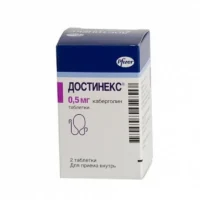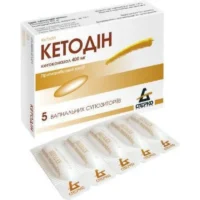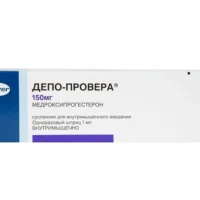Description
Dufaston (Dydrogesterone) Coated Tablets 10 mg. №14
Ingredients:
Each coated tablet contains 10 mg of dydrogesterone as the active ingredient.
Dosage:
The usual dosage is one tablet daily, starting from the 11th to the 25th day of the menstrual cycle.
Indications:
Dufaston tablets are indicated for threatened or recurrent miscarriage, infertility due to luteal insufficiency, irregular menstrual cycles, and endometriosis.
Contraindications:
Do not use Dufaston if you have a history of allergic reactions to dydrogesterone or any other components of the tablet.
Directions:
Swallow the tablet whole with a glass of water, without chewing or crushing it. Follow the dosage instructions provided by your healthcare provider.
Scientific Evidence:
Dydrogesterone, the active ingredient in Dufaston, is a synthetic progestogen with unique pharmacological properties. It has been extensively studied for its efficacy in various gynecological conditions. Research has shown that dydrogesterone is effective in preventing recurrent miscarriages by supporting the secretory endometrium and maintaining pregnancy.
A systematic review concluded that dydrogesterone is as effective as other progestogens in treating endometriosis-related pain and has a favorable safety profile.
Additional Information:
- Dufaston tablets should be stored in a cool, dry place away from direct sunlight.
- Avoid consuming alcohol while taking this medication as it may interact with the drug’s effectiveness.





